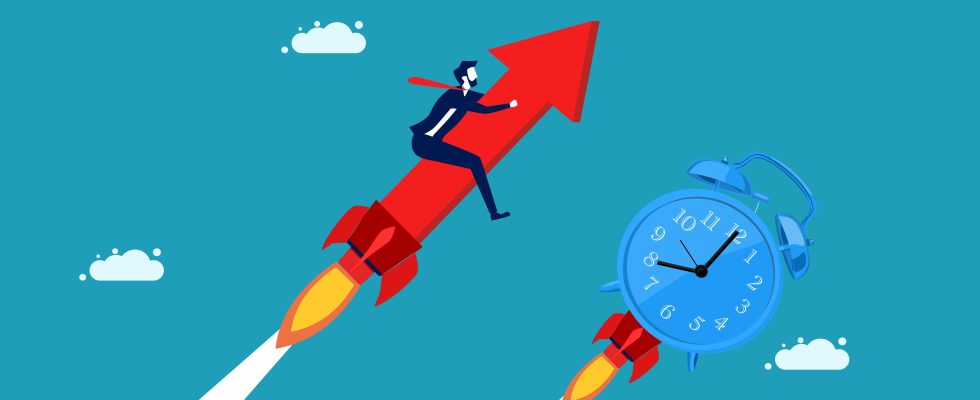The 11 a.m. craving and we struggle not to rush to the coffee machine or the local bakery to get our dose of sugar in order to get going again. Same problem after a heavy lunch and uninterrupted yawning becomes the master of the biological clock. “Sleep, the child does/The child will sleep very quickly…” When the eyelids also become heavy, we drink liters of coffee again, promising ourselves that next time, it will be a frugal meal. “The child will sleep soon.” Monday morning is no better: we go around the offices and e-mails to avoid the report that N + 1 is waiting for.
Everyone, in their own way, experiences their productivity and their “off” moments. Full-time telecommuting employees worked 5.4 hours per day compared to 7.9 hours per day for those on-site in 2022, says the U.S. Bureau of Labor Statistics (BLS). Really ? 44% of employees judge that their productivity does not vary depending on their workplace, 29% judge that it is lower when they work in coworking, 13% that it drops when they are with other colleagues in a private space and Only 14% say it is less when they work remotely (Sabrina Khoulalène, content analyst for Software Advice, January 2024). The teleworking debate will not be settled, but micro-scale productivity can be improved.
Employees more productive on Tuesday than on Friday
Tuesday (83%), Wednesday (70%) and Monday (60%): these are the three days when employees feel the most productive, ahead of Thursday (59%). Coming far behind, Friday (29%). “Friday is the most teleworking day, some companies have even chosen to eliminate meetings on this day”, specifies Noémie Cicurel, European training and development director at Robert Half (“What candidates want”, April 2023 ).
The start-up can be quite slow, employees are not 100% on Monday morning. It’s up to managers to focus on the days when employees recognize that they are in good shape. Second lesson: employees are morning people. In fact, 82% of them feel more productive between 9 a.m. and 12 p.m. and 55% between 6 a.m. and 9 a.m. – almost on par with the 56% who respond between 1 p.m. and 3 p.m. At lunchtime, it drops (35%), as well as from mid-afternoon between 3 p.m. and 6 p.m. (48% say they are productive). To abolish late meetings: only 16% feel effective between 6 p.m. and 9 p.m., 7% from 9 p.m. to midnight. “What is most popular is flexibility,” adds the expert. A demand launched by millennials (people born in the 2000s, between approximately 1985 and 2005), which has permeated all age groups. Flexibility with a break chosen by the employee for shopping, sports, picking up their child from school or taking care of themselves, allows for much better efficiency when they get back to work. It is up to organizations to take these elements into account and to managers to distribute work to best advantage, also taking into account the proliferation of emails.
The key role of digital stress
In terms of work organization and psychosocial risks, it is in fact “infobesity” which is singled out by Arthur Vinson, co-president of the Observatory of infobesity and digital collaboration (OICN) and Mailoop. According to him, the quality of work (particularly in the sector of activities constantly using digital tools) is closely linked to the ability to resist a daily avalanche of e-mails: “51% of responses to e-mails are in less than an hour and 70% of emails interrupt work.” This reassuring “responsiveness” is on the contrary time-consuming: at the end of the day, the work remains to be done. 60% of employees (74% of managers) are unable to process all their emails. These micro-interruptions are tiring. “We cannot measure the cost to the brain,” continues Arthur Vinson. Transfers that increase participant loops are a false good idea that fuels infobesity.
One solution: resist techno-stress by allowing yourself “thirty minutes of concentration so that our brain is at its best”. However, managers only have five one-hour slots per week, reveals the expert. Creativity takes a long time, often forgotten by organizations. Forget splitting. Take your leave, do not anticipate your return to work on Monday to be rested. Breaks are essential so that digital fatigue does not affect our productivity and better yet, our creativity. Time, the gold of the 21st century?
.
